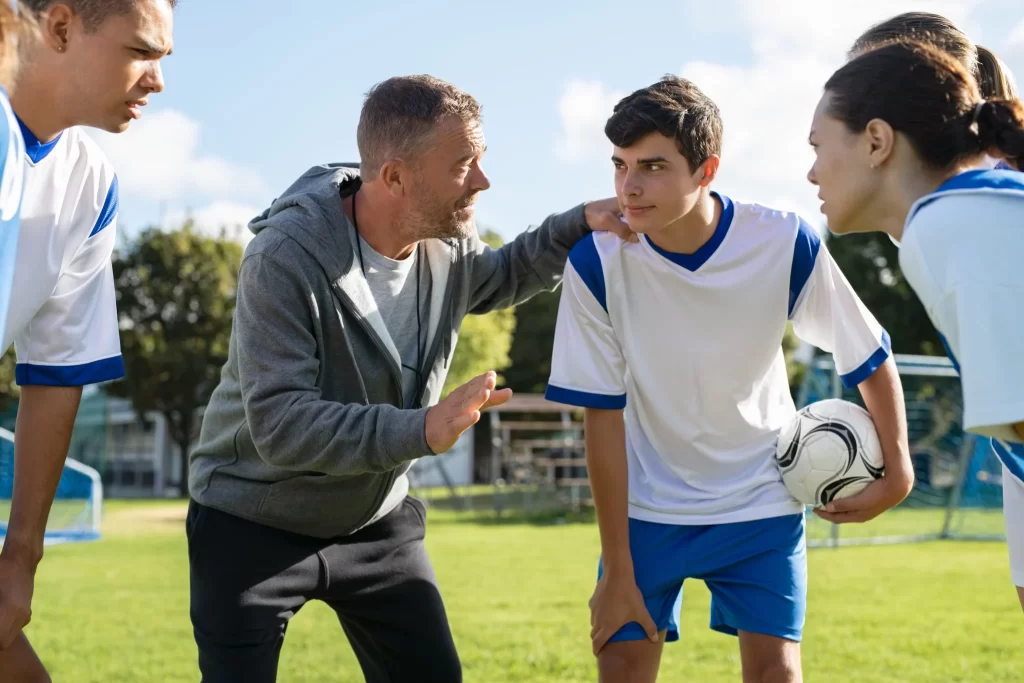For instance, in studies examining the role of parents in junior tennis using the perspectives of coaches, players and parents, parenting practices perceived to positively influence players’ development included the provision of unconditional love, logistical and financial support and parents holding children accountable for their on-court behaviour. Conversely, negative parenting practices included parents over-emphasizing winning, lacking emotional control and criticizing children.
Similarly, studies with child athletes themselves have revealed their preferences for parenting practices surrounding competitions. For example, my colleagues and I studied how early adolescent female athletes prefer their parents to behave at team sport competitions. We found their preferences include parents assisting with game preparation, focusing on effort rather than outcome, showing respect, not drawing undue attention to themselves and providing positive yet realistic post-competition feedback.
‘Best’ sport parents
One study we conducted at the University of Alberta examined exemplary parenting in competitive female youth team sport. We asked coaches to nominate some of the “best” sport parents the coaches had ever worked with.
The study revealed some interesting findings. These parents supported their daughters’ autonomy in various ways, including fostering independence and understanding — and supporting — their daughters’ goals for sport. We found the idea of sharing goals is important; these exemplary parents shared their children’s goals, rather than imposing their own goals on their children.
Exemplary parents also build healthy relationships in the sporting milieu, which can involve supporting the coach and players on the team, connecting with other parents and volunteering with the club. Finally, these parents were in tune with their own emotions, especially during and after competitions.
Importance of free & active play
Parents are increasingly becoming aware of advice that children should sample a range of sports, rather than specializing in a single sport. There is some evidence to support the benefits of sport sampling and the risks of early specialization. However, in the larger goal of supporting healthy child and family development, parents should be cautious about involving their children in too many sports.
When sport seasons overlap, children may become overscheduled. It is vital to retain a sense of balance, because if children over sample and become overscheduled, they miss out on a vital part of their childhood — active play. Parents, too, can hardly expect to be at their best when they’re run ragged with travelling from event to event.
Parents can create positive sporting experiences if they listen to their children and understand their children’s goals for sport, consider how their parenting styles and practices support their children’s experiences, and build healthy relationships in the sporting milieu. But with this investment in sport, it is important to retain a sense of balance in children’s lives.

